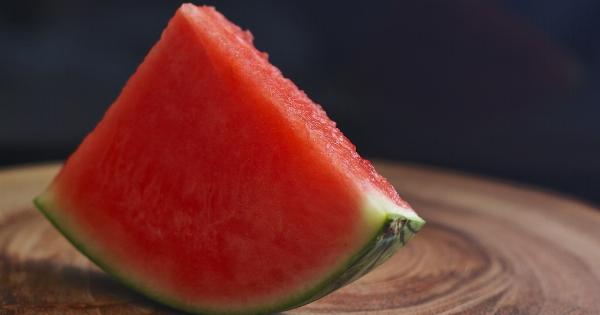Watermelon has become synonymous with summer. It’s the refreshing fruit that everyone craves on a hot summer day. But how did watermelon become the king of summer? The answer lies in its history.
Watermelon’s History
Watermelon has been around for thousands of years. Its origins are in Africa, where it grew wild in the Kalahari Desert. Early Egyptian hieroglyphics depict watermelon, and it was a popular fruit in Ancient Rome and Greece.
Watermelon was brought to North America by European colonists in the 1500s and has been cultivated here ever since.
Watermelon’s Popularity
Watermelon’s popularity comes from its refreshing and hydrating qualities. It’s made up of 92% water, making it the perfect snack to cool down with on a hot day. It’s also low in calories, with only 40 calories per cup.
Watermelon is also versatile and can be eaten in a variety of ways, from sliced to diced in a salad or smoothie. And let’s not forget about the fun of seed spitting contests!.
Watermelon’s Benefits for Health
Watermelon isn’t just a refreshing summer treat. It also has many health benefits. Here are some of the benefits of watermelon:.
- Hydrating: Watermelon is 92% water, making it the perfect way to stay hydrated during the summer months. Drinking water can get boring, but eating watermelon is a fun and tasty way to stay hydrated.
- Low in calories: If you’re watching your weight, watermelon is a great snack. It’s low in calories, with only 40 calories per cup.
- High in nutrients: Watermelon is rich in vitamins and minerals, including vitamin C, vitamin A, potassium, and magnesium. These nutrients are important for overall health and can help prevent chronic diseases.
- Anti-inflammatory: Watermelon contains lycopene, which has anti-inflammatory properties. This can help reduce inflammation in the body and prevent chronic diseases.
- Good for heart health: Watermelon is rich in citrulline, an amino acid that can boost nitric oxide levels in the body. This helps to relax blood vessels and improve blood flow, which can lower blood pressure and reduce the risk of heart disease.
How to Pick the Perfect Watermelon
Picking the perfect watermelon can be tricky. Here are some tips to help you choose the best one:.
- Look for the field spot: The field spot is the area of the watermelon that was resting on the ground. It should be a creamy yellow color, indicating that the watermelon is ripe.
- Check the weight: A ripe watermelon will feel heavy for its size. This is because it’s full of water!
- Tap it: Tap the watermelon and listen for a hollow sound. If it sounds dull, it’s likely not ripe.
Conclusion
Watermelon has become the king of summer thanks to its refreshing and hydrating qualities. It’s also low in calories, versatile, and fun to eat. But it’s not just a tasty treat – watermelon also has many health benefits.
It’s hydrating, high in nutrients, anti-inflammatory, and good for heart health. So next time you’re looking for a refreshing snack, reach for a slice of watermelon.





























